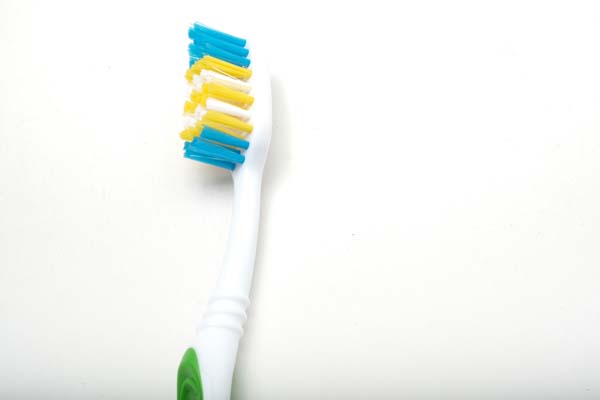Are You Brushing Your Teeth the Right Way?

Brushing your teeth is one of the easiest and most effective things you can do to keep them healthy. It is an important part of your hygiene routine. It can be the difference between having a bright smile you can be proud of or ugly looking teeth you are reluctant to display.
Simply brushing teeth every so often is not enough. It is vital that you brush at least twice each day, with the right type of toothbrush, toothpaste and brushing technique.
Read on to learn how to properly brush your teeth.
Brushing the right way
Patients are often surprised to learn that they might have been brushing their teeth the wrong way their entire lives. The bristles of a toothbrush can damage enamel, especially if you have a habit of brushing too hard or using poor technique.
It almost feels natural to use a back and forth motion while brushing teeth, but the sawing motion wears off teeth enamel in the process. This can lead to your teeth aging prematurely.
When enamel is worn off, you may experience increased sensitivity to hot and cold food items.
If you brush too hard, you can damage your gums. When the gums recede, your teeth can become more sensitive or more susceptible to damage from bacteria.
Using a sawing motion is not an effective way to clean teeth either. It tends to miss the areas where teeth meet each other. These spaces are also one of the most vulnerable parts of a tooth when it comes to tooth decay. It is easier for plaque or food particles to become lodged around them.
Proper brushing technique
Brushing your teeth the right way is very easy. Learning new brushing habits might feel awkward at first, but there is a hack for that. Using your non-dominant hand sometimes makes it easier to learn a new technique.
To start brushing correctly, put the toothbrush over a set of teeth and rotate the brush so that the bristles move up and down. Keep wiggling it as the bristles go up and down each tooth. This motion allows the bristles to make it into the areas around where teeth meet. It ensures plaque and food particles are properly removed while brushing.
Move over to the other set of teeth once finished with the first. Repeat the process until every tooth is clean.
Benefits of proper brushing techniques
Using improper brushing techniques might feel faster or more effective, but all it does in the long-run is damage teeth. Brushing with an improper technique also makes it possible for plaque to build up on teeth. An increase in plaque can lead to dental issues like gum disease and tooth decay.
Practice using the proper technique the next time you brush your teeth. You will notice a difference immediately.
Want dental help beyond brushing?
Brushing only keeps your teeth clean. You still need to see a dentist twice a year for deep cleaning and to monitor overall health.
If you want to take better care of your mouth, then call us to see how we can help.
Request an appointment here: https://ptpleasantdentalspa.com or call Point Pleasant Dental Spa at (732) 272-0912 for an appointment in our Point Pleasant office.
Check out what others are saying about our dental services on Yelp: General Dentist in Point Pleasant, NJ.
Related Posts
Root canals are one of the most common dental procedures dentists perform. However, there are many different types of dentists for you to choose from, making it necessary to understand if your general dentist is able to perform specific dental services, such as a root canal. General dentists are equipped to perform a root canal. In…
General dentistry consists of a lot of routine oral health care, which also happens to include restoring teeth that are in bad shape due to damage. Common damage may include cracks, chips, or cavities, all of which can be addressed with the help of different dental restorations. Continue reading to find out what dental restoration…
Daily oral hygiene is one of the most important things that a general dentist focuses on. Without a good oral hygiene routine, individuals are more likely to develop cavities or gum disease, both of which require treatments to solve. Having a good understanding of important daily oral hygiene can go a long way. Keep reading…
Your first visit to a new dental office can be a time of great anxiety, especially since you do not know what to expect. The good news is that going to a new dentist is simple, and by understanding what the first visit will entail, you can make sure you are prepared. The dentist will…
